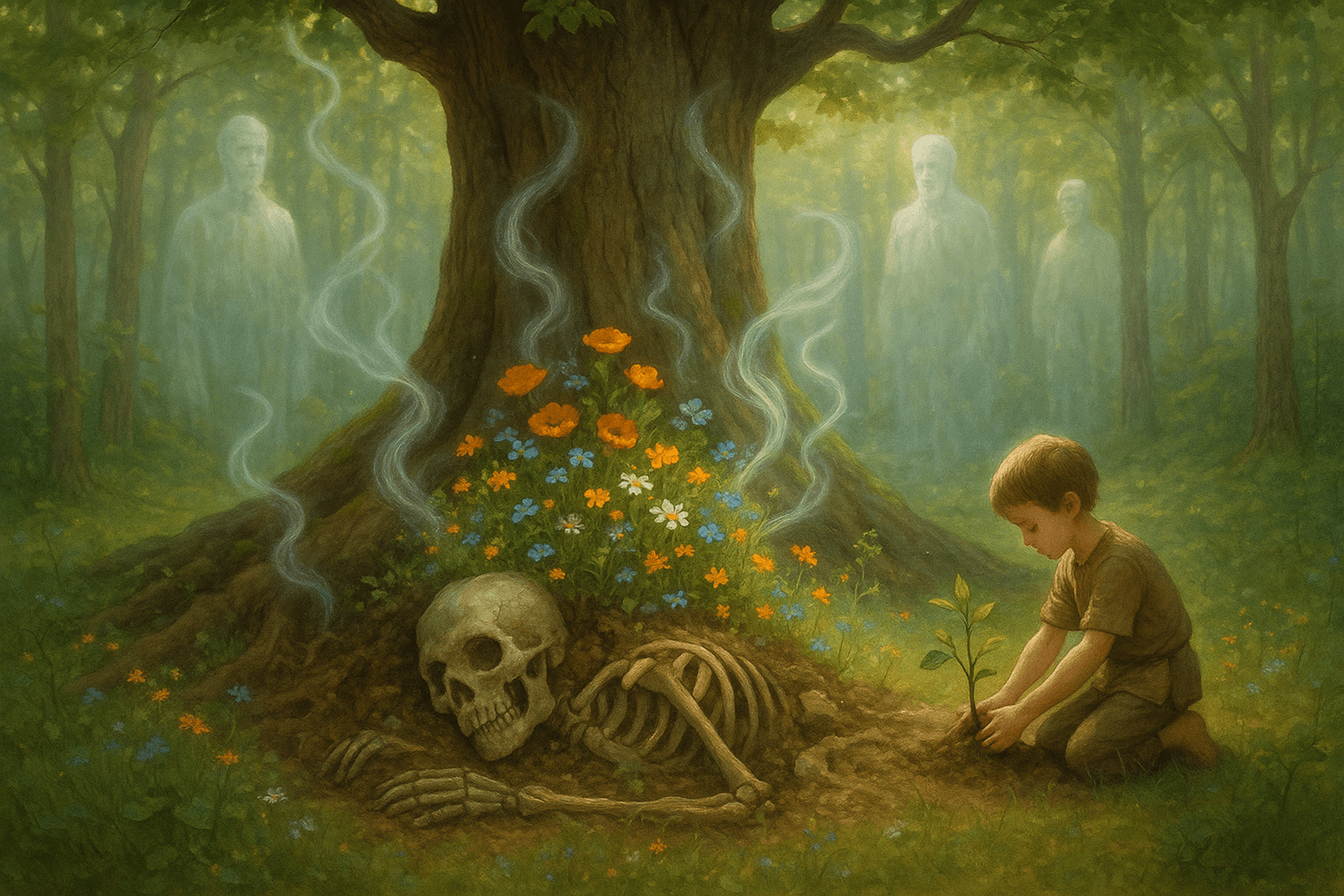Memory as Immortality: How We Transcend Death

There is no death, daughter. People die only when we forget them. — Isabel Allende
—What lingers after this line?
One-minute reflection
Where does this idea show up in your life right now?
Defining Death Beyond the Physical
Isabel Allende’s words challenge conventional definitions of death, urging us to look beyond the cessation of biological life. Rather than seeing death as an absolute event, Allende reframes it as a condition defined by memory and remembrance. This perspective invites us to consider that true loss occurs not when the heartbeat stops, but when the stories and experiences of a person are erased from the consciousness of others.
The Power of Remembrance
Building on this notion, cultures across the world have cultivated practices centered on keeping the deceased alive through memory. For instance, the Mexican tradition of Día de los Muertos (Day of the Dead) embraces annual rituals in which families share anecdotes, display photos, and prepare favorite foods of their lost loved ones. Such acts underscore the idea that as long as someone is remembered, their influence endures.
Literature’s Role in Immortality
Transitioning from cultural practices to literature, authors often use storytelling to immortalize individuals and communities. Allende herself weaves ancestral memories into her novels, such as in 'The House of the Spirits' (1982), where family histories persist through generations. By transforming memories into narrative, writers create a form of lasting presence, ensuring characters and real people alike are not forgotten.
Grief, Healing, and the Act of Remembering
This thread leads us to the role of memory in the grieving process. Psychologists highlight that sharing stories about the deceased can aid healing, as it helps mourners integrate their loss and maintain a continuing bond. Rather than severing ties, memory becomes a bridge, demonstrating that the person’s influence and essence remain part of the ongoing fabric of loved ones’ lives.
Legacy in an Interconnected Age
In today’s digital era, the idea that 'people die only when we forget them' resonates powerfully. Social media memorials, digital archives, and online tributes allow stories and images to circulate widely, resisting oblivion. Thus, Allende’s insight is more relevant than ever: by actively remembering—and sharing—those who have passed, we weave their legacies into the tapestry of communal identity, granting them a form of immortality.